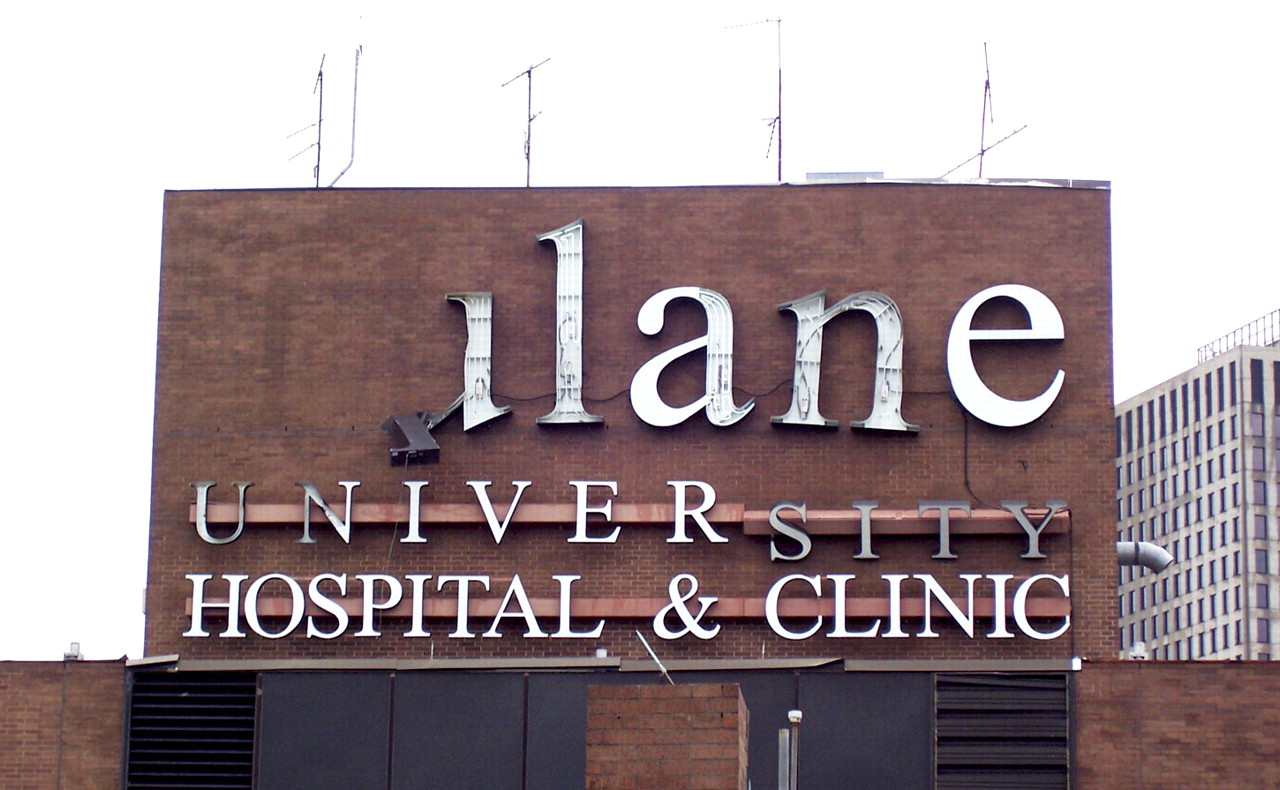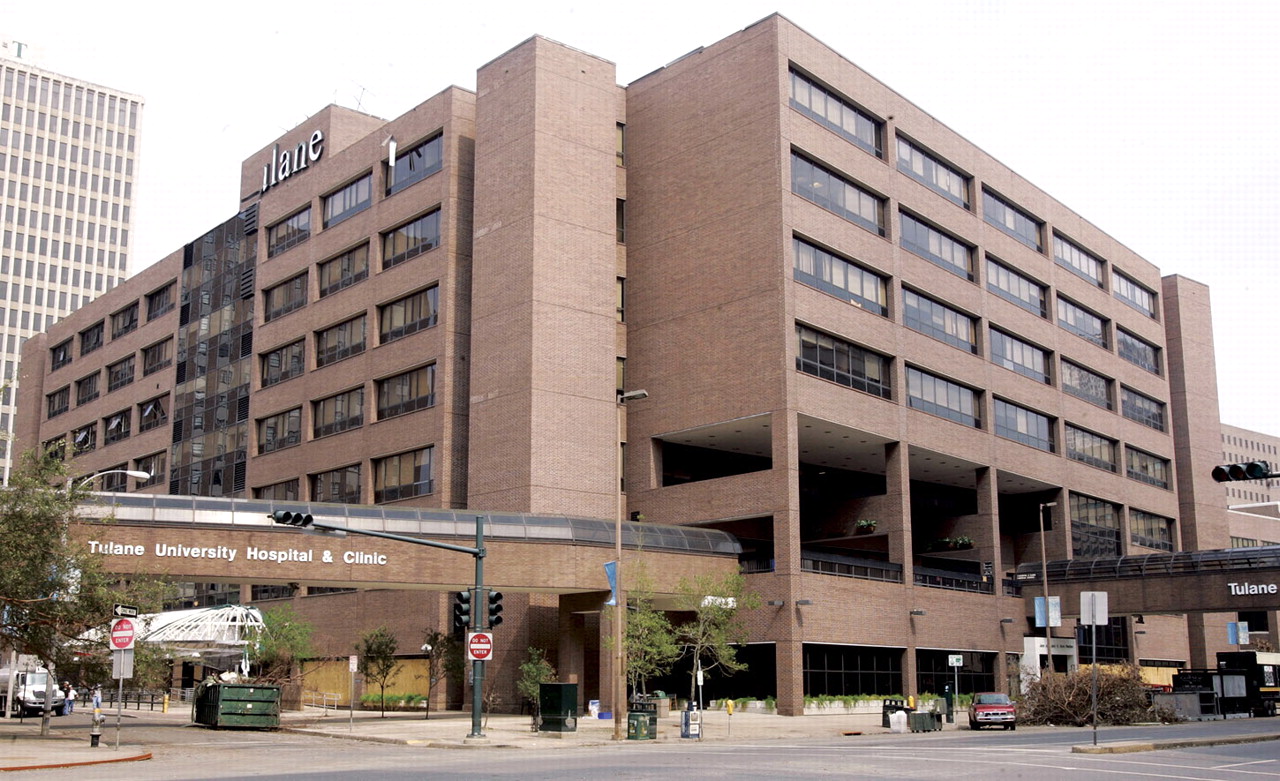Damaged Facility Doesn't Thwart Tulane's Residents
Scattered by hurricane winds to other parts of the state—or temporarily to Baylor College of Medicine in Houston—psychiatry residents from Tulane University School of Medicine in New Orleans are vowing to return to their city.

Despite the profound upheaval in the lives of both trainees and faculty in the wake of Hurricane Katrina, the education of psychiatrists is continuing without interruption, according to the program director, and the residency program at Tulane is expected to resume in New Orleans next year. See story on page 5.
Brad McConville, M.D.
And leaders there say the residency program will go on without disruption.
“We will be back,” declared training director Patrick O'Neill, M.D. “My sense is that we will come out of this stronger.”
Interviews with O'Neill and residents in the program reveal that despite the profound upheaval in the lives of both trainees and faculty in the wake of Hurricane Katrina, the education of psychiatrists is continuing without interruption, and the residency program at Tulane is expected to resume in New Orleans next year.
That was by no means obvious in the earliest days after the hurricane and the flooding of the city. At that time, an ad hoc committee of educational leaders from the American Association of Directors of Psychiatric Residency Training convened to discuss the future of training programs in the Southeast.
Committee Chair Paul Mohl, M.D., who is training director at the University of Texas Southwestern, told Psychiatric News that the plan in the immediate aftermath of the storm was to transfer trainees in New Orleans and elsewhere affected by the storm to training programs anywhere in the country where they could be absorbed.
But within a matter of days, Mohl said, it became clear that programs at Tulane and at Louisiana State University School of Medicine in New Orleans“ were making remarkable efforts to get going again.”
The training program at Louisiana State relocated to Baton Rouge, along with the medical school. But residency program director Scott Griffies, M.D., said faculty from the program also followed patients who were moved from Charity Hospital (the city's large public hospital, now permanently closed) to Central State Hospital in Pineville, La. Some residents are working in Lafayette, La., while the program has also maintained a presence at Ochsner Hospital, a private psychiatric hospital that has remained open in New Orleans.

In this photo of Tulane University Hospital taken on September 18, the“ T” is missing from the large sign on the roof, and plywood is visible on the ground floor.
(AP Photo/Ann Heisenfelt)
But at Tulane, at least some of the psychiatry residents would have to move temporarily to Houston, where they would resume training at Baylor University College of Medicine. Despite the move, they would continue to be considered Tulane residents.
“We started out trying to move residents [into other programs] and ended up discouraging residents from transferring,” Mohl said. “If we had continued with our original plan, it would have decimated those programs.”
Mohl said that other smaller programs in the Southeast—at the University of South Alabama College of Medicine and the University of Mississippi—were also considered in disaster planning by the committee but ultimately experienced only minimal disruption. Charles Rich, M.D., director of training at the University of South Alabama, said psychiatrists there were seeing a significant increase in patients as a result of the storm.
Kristoffer McCoy, M.D., co-chief psychiatry resident at Tulane, told Psychiatric News that today 14 of Tulane's residents— or about a third of its trainees—have relocated to Baylor College of Medicine in Houston, along with O'Neill (who lost his house in New Orleans). There they are continuing their training under O'Neill and Baylor residency training director Linda Andrews, M.D.
Five residents have moved to Baton Rouge, four are in the Jefferson Parish–New Orleans area, four in Lafayette, La., and one resident landed in Alexandria, La. One resident is completing an elective in Mississippi, and another is doing the same in Kansas City. Four residents have requested a temporary leave of absence; only one has resigned, according to McCoy.
In every case, residents have taken up work in hospitals, clinics, and shelters. First- and second-year residents are receiving inpatient training at Baylor, while third- and fourth-year residents are doing outpatient work in clinics around the state.
“Almost everyone is doing what they would have been doing anyway,” McCoy said.
McCoy's information technology skills were a lifesaver in the days immediately after the storm. Numeric pages were still working in most locations, and he sent out text messages referring residents and faculty to an Internet group he had established for ongoing communication.
“I'm a computer guy, so the technical aspect of it was no big deal,” he said. “It took about a week, and almost of all our residents and faculty were hooked up.”
Continuity Not Negotiable
The continuity of the Tulane program is a point that O'Neill and trainees insist upon.
“These are still our residents,” O'Neill said of his trainees in Houston. “The plan is for this to be anywhere from two to six months long. When we can go back to New Orleans, we will move back. At no point are any of these residents Baylor residents.”
Andrews, of Baylor, who is also associate dean of graduate medical education there, agreed that in the midst of an extraordinarily fragmenting experience, educators at both institutions have worked to make the experience as seamless as possible for residents.
“Early on Tulane [officials] made it clear that they wanted to continue their program,” she said. “To the Tulane residents, this is still the Tulane residency program. That's important because it will not appear that there was any interruption in their training. They are going to all of the Baylor grand rounds and journal clubs. I think the mechanics [of their educational experience] will be the same as what they are used to.”
But, she added, “I think they are forever going to be different doctors because of this experience.”
Recruits Are Highly Autonomous
That's a sentiment seconded by faculty and residents alike who are treating the sequelae of America's worst natural disaster, while coping with their own enormous sense of dislocation.
“The trainees who are staying in Louisiana are going to get an experience no one has ever had,” O'Neill said.
McCoy, who is working in a rural outpatient mental health clinic in Lafayette, La., said the nature of the clinicians Tulane tries to recruit has made them unusually adaptable.
“We recruit people who are highly autonomous,” he said.“ We shoot for self-starters, and that has proven to be invaluable. Our residents don't need to be watched 24 hours a day.”
He told Psychiatric News that many of the evacuees from New Orleans he is treating—often the poorest of the poor—remain unaware of the extent of devastation in their hometown.
“I've been back to New Orleans 10 times,” he said. “I don't like the analogy of a war zone, but that's what it looks like. An entire city will have to be rebuilt, and it's not going to take months, but years.”
Yet residents and faculty remain determined, even “gung-ho,” about returning to their city. “Living in New Orleans gets in your soul, and it's hard to leave,” said O'Neill. “This is as much an opportunity as anything else, a chance to rebuild a terribly broken health care system in the southeastern United States.” ▪



